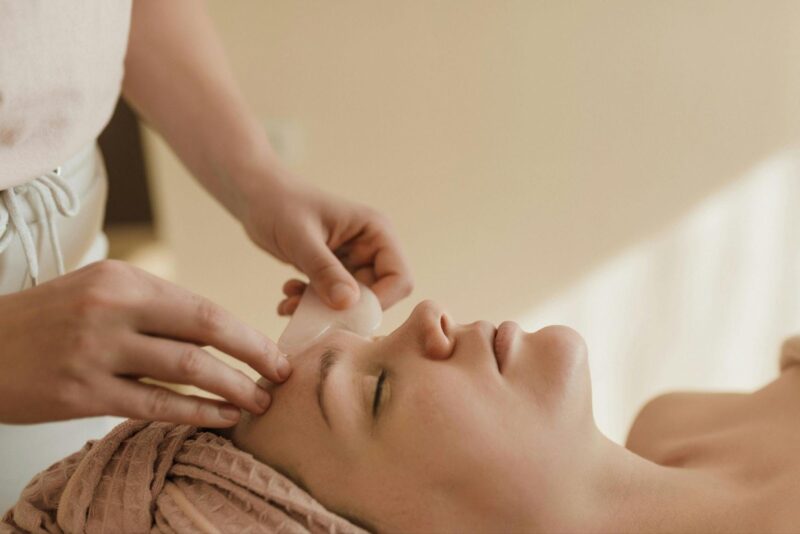
Aging is an inevitable part of life, but it doesn’t have to mean declining health and vitality.
Maintaining fitness as a senior is crucial for a fulfilling and independent lifestyle. The benefits of staying active and engaging in regular exercise extend far beyond physical health.
Additionally, some Medigap plans even offer gym memberships as a part of their coverage, making it easier for seniors to access fitness facilities. You can read more about gym membership coverages with Medigap policies at boomerbenefits.com/faq/does-medicare-plan-g-cover-gym-memberships. In this article, we will explore why fitness as a senior is so important, delving into its advantages, from physical well-being to mental and emotional health.
Physical Health Benefits
One of the most noticeable changes that come with aging is a gradual decline in muscle mass and strength. However, regular exercise can help seniors combat this decline. Strength training exercises, such as lifting weights or using resistance bands, help seniors maintain muscle mass and improve their strength. This, in turn, enhances mobility, making everyday tasks like climbing stairs, carrying groceries, or getting out of a chair easier and safer.
Bone and Cardiovascular Health
Our bones become more fragile as we age, increasing the risk of fractures and osteoporosis. Weight-bearing exercises, like walking, jogging, or dancing, are excellent for maintaining bone density and reducing the risk of fractures. Engaging in these activities can help seniors maintain their independence and prevent falls.
Heart health is also a vital concern as we age. Regular aerobic exercise, such as swimming, cycling, or brisk walking, helps improve cardiovascular health. It lowers the risk of heart disease, high blood pressure, and stroke. Additionally, improved circulation can enhance energy levels and overall vitality.
Weight Management
Maintaining a healthy weight is essential for seniors. Regular exercise combined with a balanced diet can help control weight, reducing the risk of obesity and its associated health problems, including diabetes and joint pain.
Memory and Brain Health
Engaging in physical activity positively impacts cognitive function and mood regulation. Exercise increases blood flow to the brain, enhancing memory, concentration, and overall cognitive abilities. Seniors who stay active are often better equipped to handle the challenges of aging, such as memory loss and cognitive decline.

Studies suggest that physically active seniors have a lower risk of developing conditions like dementia and Alzheimer’s disease. Exercise helps maintain brain function and can slow down cognitive decline. Staying mentally engaged through activities like puzzles and social interactions contributes to mental health. Physical activity also stimulates the release of endorphins, also known as “feel-good” hormones. These chemicals are natural mood lifters, helping seniors combat depression, anxiety, and stress. Regular exercise can boost self-esteem and foster a more positive outlook on life.
Social Connections and Sense of Purpose
Participating in group fitness classes or other physical activities can provide seniors with valuable opportunities to socialize and connect with others, and maintaining a fitness routine can provide seniors with a sense of purpose and accomplishment. Building and maintaining social relationships is crucial for emotional well-being, reducing feelings of isolation and loneliness. Setting and achieving fitness goals, no matter how small, can boost self-esteem and motivation. This sense of purpose and connection can extend to other areas of life, leading to a more fulfilling retirement.
Stress Reduction and Better Sleep
Regular physical activity is a fantastic stress reliever and can improve sleep patterns, leading to more restful nights and increased daytime energy. The release of endorphins during physical activity helps reduce stress and promotes a sense of calm and relaxation. Since aging often comes with sleep disturbances, such as insomnia or frequent waking at night, Regular physical activity can improve sleep patterns, leading to more restful nights and increased daytime energy.
Independence
One of the most significant benefits of staying fit as a senior is preserving independence. The ability to perform daily activities without assistance is a valuable asset. Regular exercise can help seniors maintain their mobility and reduce the need for caregiver assistance.
Increased Longevity
Research consistently shows that seniors who maintain an active lifestyle tend to live longer and enjoy a higher quality of life later. Staying fit can delay the onset of age-related illnesses and contribute to a longer, healthier life.
Conclusion
In conclusion, fitness for seniors is not just a luxury but a necessity for a fulfilling and vibrant life. The physical health benefits, cognitive advantages, emotional well-being, and enhanced quality of life that come with regular exercise are undeniable. It’s never too late to start an exercise routine; the rewards are significant. Seniors who prioritize fitness enjoy better health and a greater sense of purpose and independence.

To make fitness a part of your senior years, it’s essential to consult with a healthcare professional or a fitness expert to develop a safe and tailored exercise plan. Whether it’s taking daily walks, participating in group fitness classes, or practicing yoga, there are countless ways for seniors to stay active and reap the rewards of a healthy, active lifestyle. Embracing fitness as a senior can lead to a more vibrant, fulfilling, and enjoyable aging journey.










